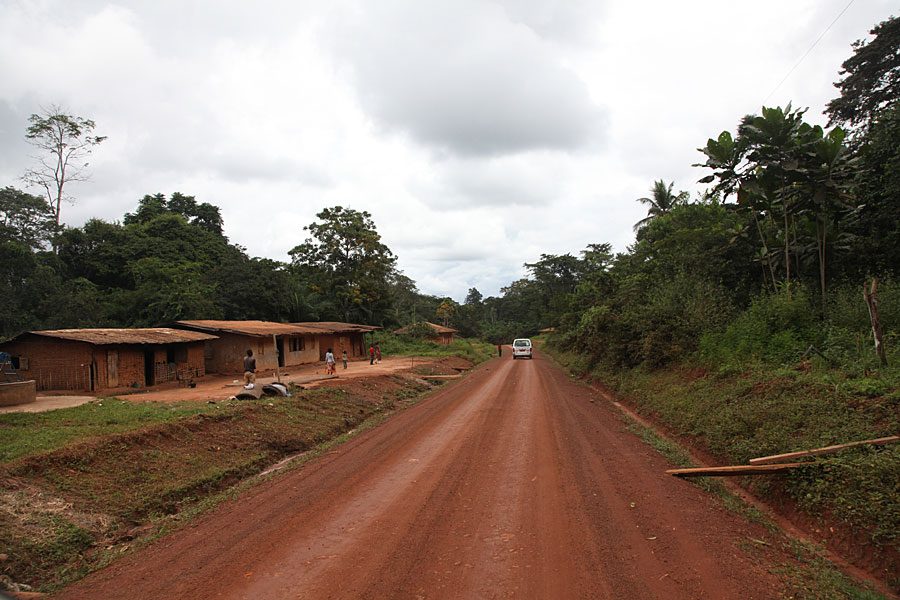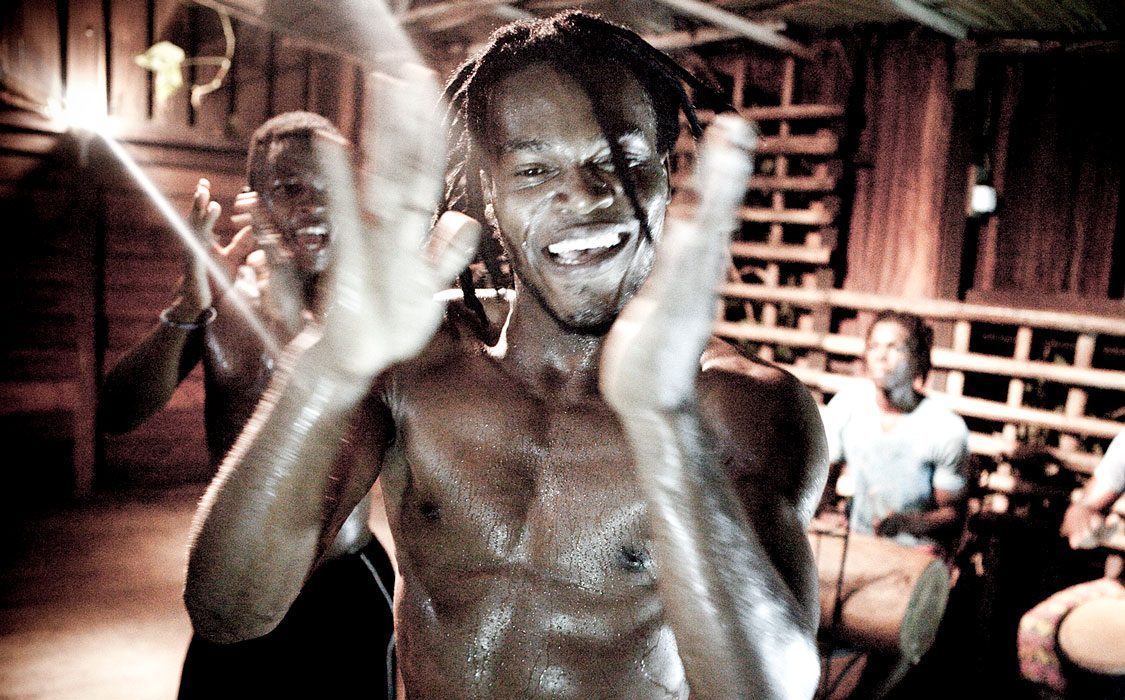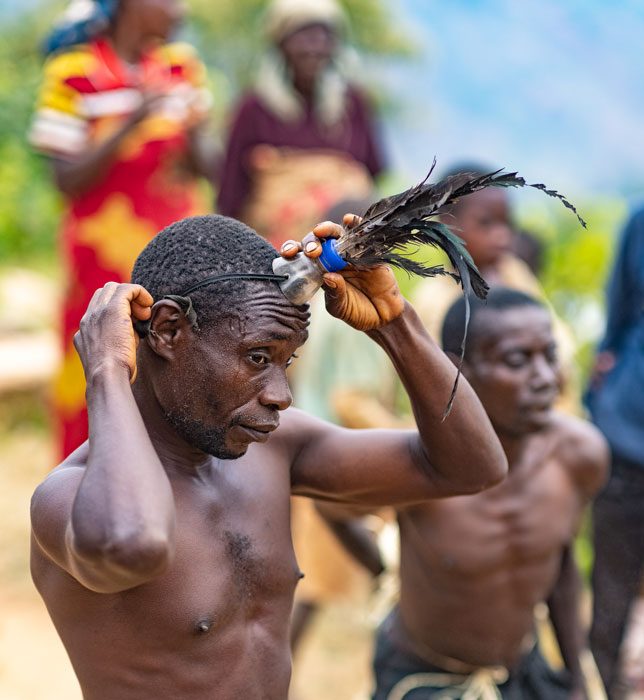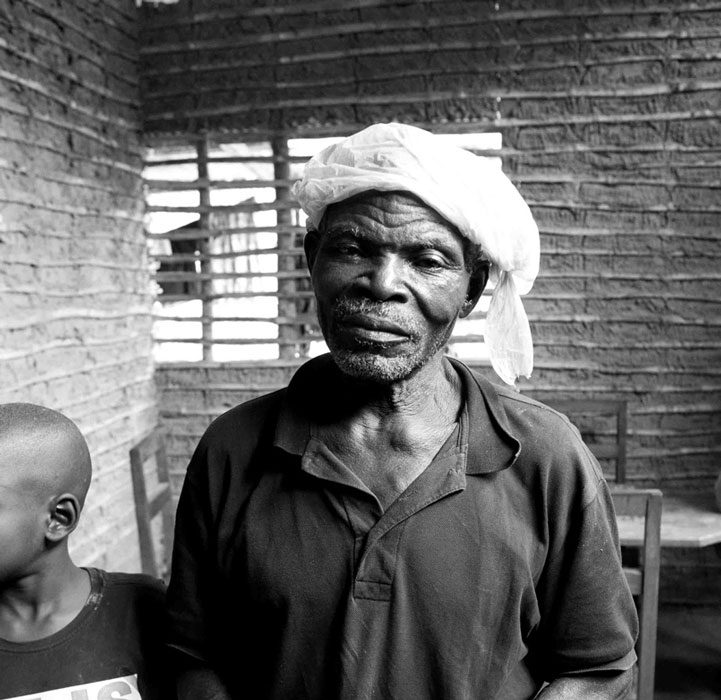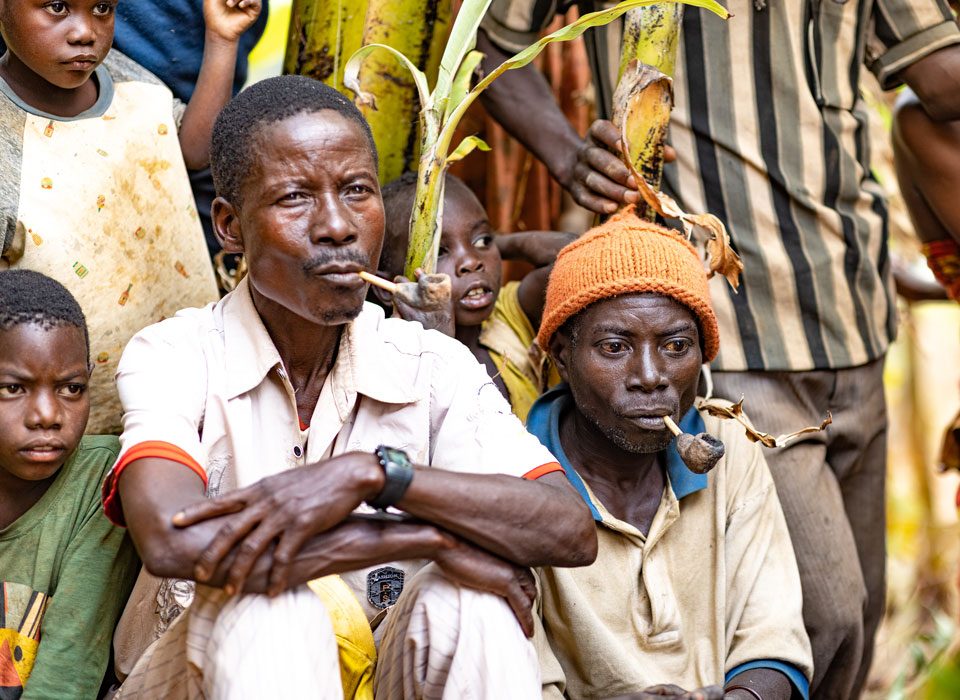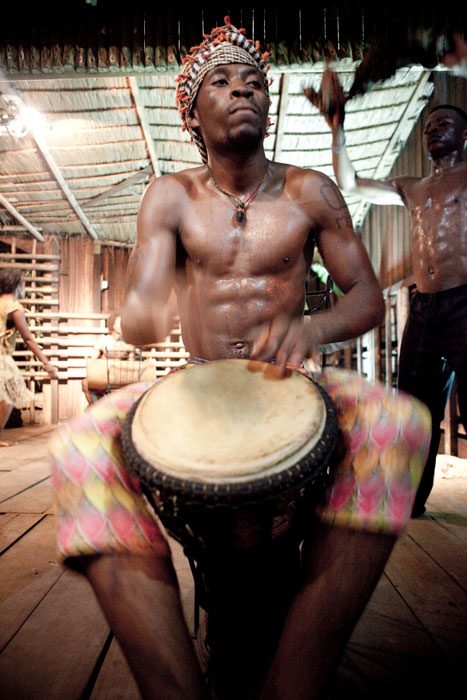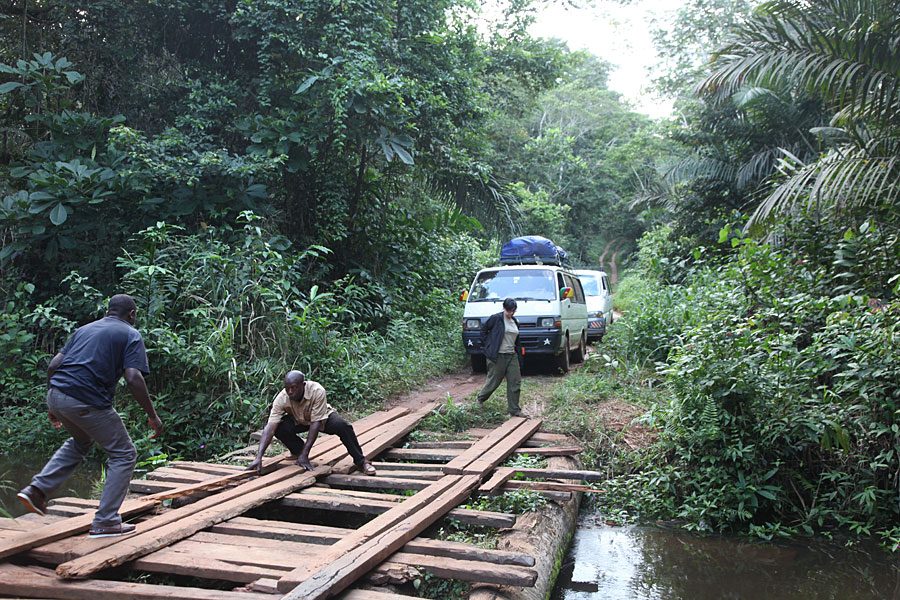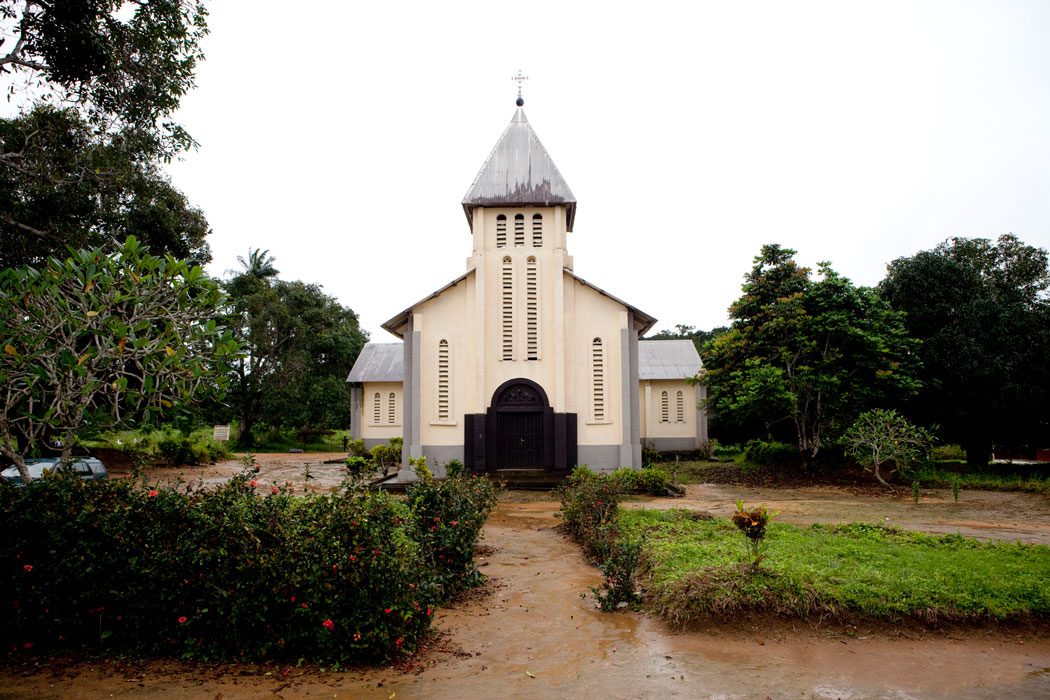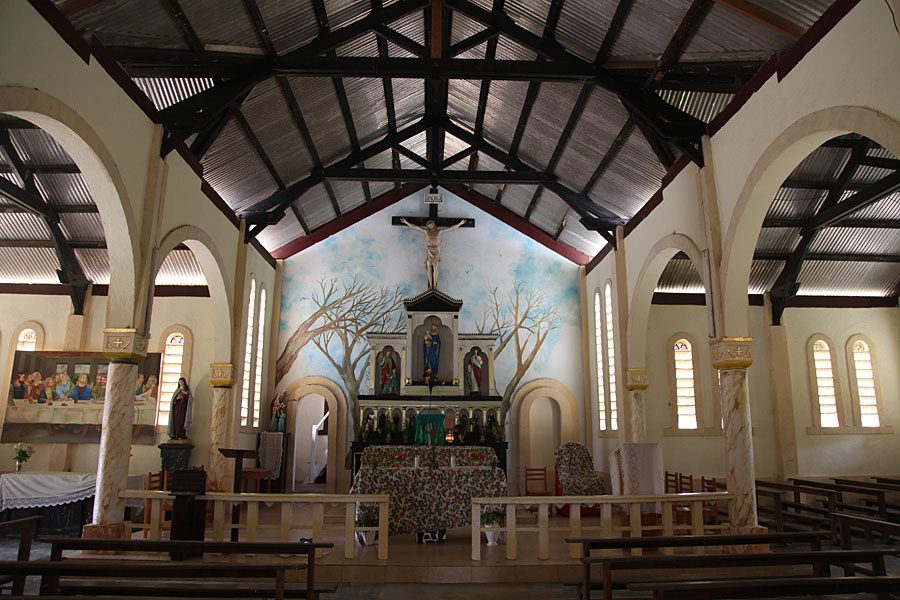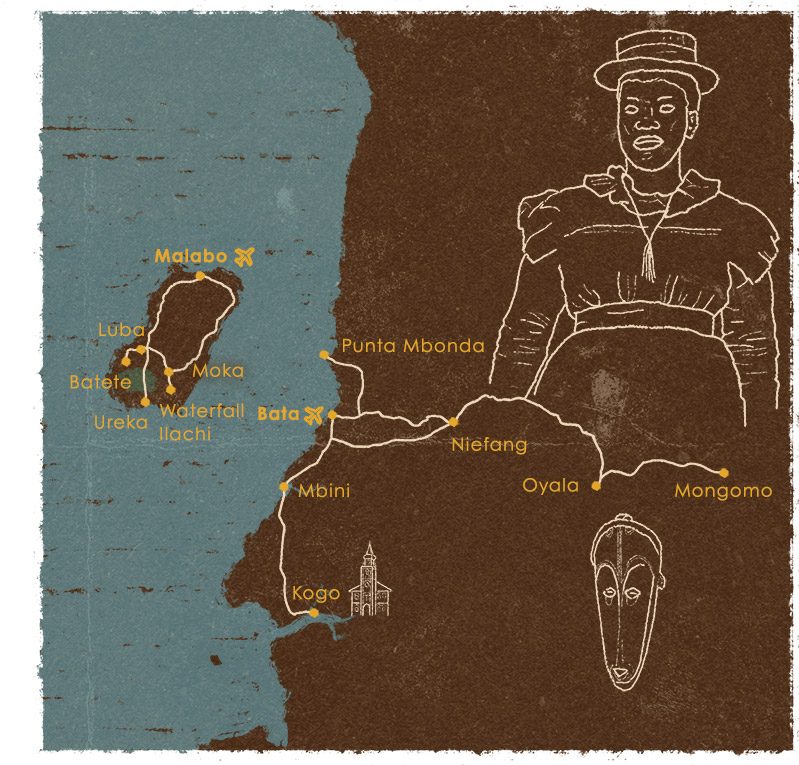Bioko Island Exploration
Malabo city tour
We will walk through the streets of old Malabo and visit historic buildings. We will also explore the most popular neighborhoods where the heartbeat of the city is felt.
We will investigate the ancestral beliefs and popular culture (fusion music and Creole dances).
Excursion to the Ilachi Waterfalls
The Ilachi Waterfalls are one of the most spectacular attractions on the island of Bioko. Impressive for its location, where three separate branches of water from the Ilachi River fall over the edge of the canyon about 250 meters.
Ureka
Bubi fishing village. They still retain some animist beliefs and are the last guardians of the original Bubi culture. We will admire the landscape of black volcanic sand beaches that surround Ureka
Sampaka cocoa farm
It was founded in 1906, with the old colonial-type "house of the masters" in green-toned wood and Nordic pine. Sampaka is one of the few farms of colonial origin still in operation and for that alone, and also for its exceptional cocoa, it is worth visiting.
Visit to the unique Church of Batete
The main curiosity of the town of Batete is a church that dominates the entire region and is among the most unique religious buildings in the world. The Church of Batete is completely built in wood.
Continental part of the country
Visit to the city of Bata
Visit to the Capital of the Continental Region of Equatorial Guinea. It is located in a small bay. Of the visit to Bata, the market, the cathedral, the palace and the promenade should be highlighted.
We will meet the Ndowé tribe
Bantu fisherman and farmer group that preserves the masks for their traditional dances. We will greet the local authorities and settle in a Ndowé village.
We'll go deep into the fang country
The Fang tribe is the dominant Bantu ethnic group in the country since independence from Spain in 1968. After decades of cultural assimilation and missionary action, the Fang ethnic group has lost much of its ancestral culture. But in some towns in the interior, the Fangs preserve some pre-colonial practices. Music and dances with fang masks have survived in some villages. Our trip will pass through these towns to learn about this ethnic group as well as these cultural practices that have been preserved.
The trip will continue until reaching Mongomo, a small city in the interior and its surroundings to learn about the reality of today's Equatorial Guinea.
Bwiti ceremony
We will approach the world of 'Bwitism', a syncretic religion that mixes elements of the primitive animist Fang religion with Catholic rituals.
We will witness a ceremony that mixes medical and initiation elements by Bwiti priests.
The trip is designed for lovers of Africa, adventure, nature and ethnic groups.Click here to easily reach the itinerary download form.
